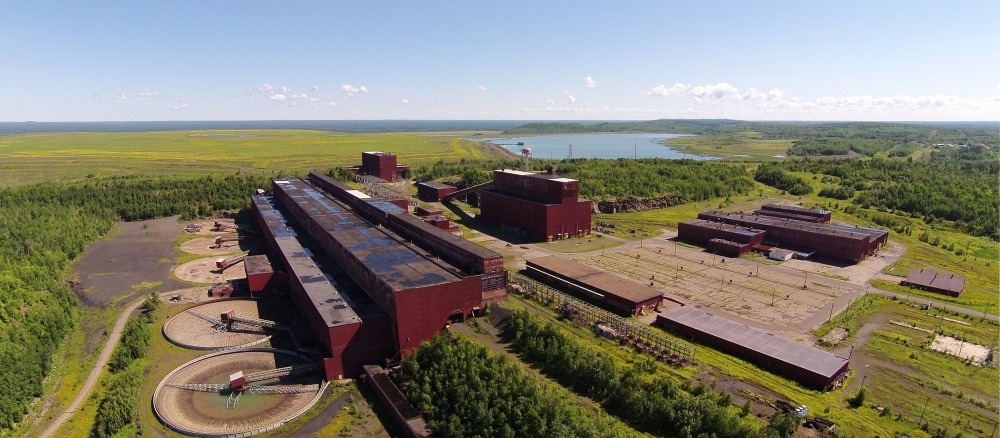Racket publishes a wide range of community voices under the Opinion banner. These pieces do not necessarily reflect the views of Racket. Interested in sharing your perspective? Email us at opinions@racketmn.com.
Dear Gov. Walz Chief-of-Staff Chris Schmitter,
First of all, thank you so much for your flattering comments relative to the efforts of my colleagues and me to make certain Minnesotans have a continuing supply of healthy water into the future. Certainly, we should be able to agree that we cannot continue our current course nor will piecemeal legislation with high sounding titles be sufficient.
It is imperative that this administration mount a unified effort to make certain that we have a comprehensive plan that measures available water supply against demand and extrapolates that into the future. And that one agency oversees protecting our supply and the health of that supply.
Currently, we have a system that largely depends on local units of government to supply and protect their waters and a defused system on the state level with the result that no one agency is in charge.
This approach is not just dangerous, but inadequate. As more research is conducted on water systems the more it concludes that water is connected via underground rivers and streams. As one expert noted, “Water does connect us all,” and contamination in one part of the state can affect the quality of the drinking water in an entirely different area, thereby making it essential that the water distribution system be organized on a state and regional basis.
Further, existing data from the Minnesota Pollution Control Agency has tracked the growth of “impaired” waters under the requirements of the Federal Clean Water Act and the results are alarming. For instance, in 2019, 56% of the state’s rivers, streams, lakes etc. were declared “impaired” and then in 2021 another 305 bodies of water, including the Upper St Croix River, were added. This is a most serious warning because it places human and wildlife in danger and clearly informs us that our supply of drinkable water is diminishing.
This is reinforced by the University of Minnesota finding that water demand is exceeding supply. Their ultimate recommendation was that the state needed “To reduce water consumption by 25% over the next 35 years.” Their ultimate recommendation being that the state needed to reduce water consumption by 25% over the next 35 years, a warning delivered in 2012 that has since gone unheeded
To make matters worse, a new type of high-risk mining has been introduced to Minnesota. In 2005, PolyMet, a shell corporation owned by Glencore, applied for a mining permit to obtain copper, nickel, and platinum instead of the usual iron ore. This type of mining is referred to as “sulfide mining,” a highly dangerous method that releases deadly toxins and acids into the water including mercury, arsenic, asbestos, lead, and cadmium. Further it releases very harmful airborne fibers into the air that seriously threaten all life.
This should have required an immediate overhaul of our existing laws which were designed for the extraction of iron ore and give no consideration to the most important concerns including health, economic impact, or harm to people’s quality of life.
When PolyMet first applied for the permit, the state should have imposed an instant moratorium until the permitting laws were updated. That would have been the most intelligent and prudent thing to do. Instead, every administration since 2006 ignored the situation as well as the clear and understandable warnings from former Vice President, Walter Mondale, who emphatically declared that “sulfide mining has never—never—been undertaken without serious environmental consequences. Sulfur ore mining is dangerous everywhere and most dangerous in wet environments,” and that “consequences of sulfide mining are perpetual. They will surely outlive the mining company’s pledges and promises and sureties.”
How could our state’s leaders even think of processing a permit to mine resources knowing that there was a real threat of arsenic, mercury, asbestos, and cadmium entering the state’s water?
Adding to this deliberate indifference to the well-being of the public was the willingness to embrace Glencore, one of the world’s most corrupt enterprises, as a partner and give them the responsibility of protecting the BWCA and Lake Superior.
Glencore: A History of Corruption
Let us be clear: Glencore, the owner of PolyMet, is fully corrupt and this is attested to by the actions various governments have taken against them. Just over the past 10 months, the following has occurred:
- Glencore pleaded guilty to five counts of bribery of corrupt officials in five African countries. The United Kingdom and Brazil joined the U.S. in this action.
- Glencore pleaded guilty in U.S. Federal Court to bribery of public officials and market manipulation and was fined $1.5 billion.
- Glencore breached oil contracts with a major oil producer.
- February 23 of this year Glencore was ordered to pay $700 million by U.S, judge in a bribery case.
Despite Glencore’s lengthy international rap sheet, this administration is entrusting them with the BWCA and Lake Superior, leaving our most obvious question unanswered: Why is the state of Minnesota partnering with a corrupt entity?
Glencore’s Underhanded Political Dealings
There are other concerns that have also been ignored including the failure to deal with Glencore’s consistent record of bribery of public officials.
- What steps has this administration taken to make certain that “dark monies” and other forms of financial persuasion cannot take place here?
- Has there been an examination of Glencore’s books to determine where and how their “political contributions” are made?
- Did you consider legislation that requires tracing contributions back to their original source as some other states have done? What actions, if any, did this administration take?
This may be a sensitive topic, but the public’s best interests are not being protected. After all, there is no wall of virtue surrounding Minnesota and the record of Glencore speaks very, very loudly, emphasized by the U.S. Department of Justice statement that “Glencore paid bribes to ‘make money’ and it did so with the approval, and even encouragement, of its top executives.”
Bribing public officials appears to be part of the Glencore business plan and yet, this administration wants them as a business partner. Why?
No place does Glencore’s influence show up more than in its ability to avoid assuming full liability in the mining permits involving PolyMet. Essentially, this administration has placed not only the BWCA and Lake Superior in jeopardy, but the Minnesota taxpayer as well. What justification is there for the absence of Glencore not giving Minnesotans a 100% guarantee against damages? After all, they claim the entire operation is perfectly safe, in addition to Governor Walz promising a full guarantee that “People here are quite sophisticated. They know that Glencore is running the operation... and our philosophy is that the parent (company) should be on the permit.”
Having worked for the law firm representing PolyMet, both you and Karl Procaccini, the Deputy Chief of Staff and Legal Counsel to the Governor, must be knowledgeable about why PolyMet was formed, the inadequacy of its finances, and the corruption that surrounded Glencore. This is particularly important because that firm proudly proclaims that “every attorney in the firm is personally invested in our clients’ success.” Further, Karl Procaccini served as an outside counsel for PolyMet.
Did you and Mr. Procaccini not have a special duty to warn the state of Minnesota about doing business with Glencore? Did you not, at least, have a responsibility to alert the Governor, the Attorney General, and leaders of the Legislature and set up, at a minimum, a thorough screening process and a full legal review by the Office of Attorney General of all permits being considered for Glencore and its subsidiaries?
That would have been the responsible course to take. Instead, this entire issue involving Glencore was covered behind a stonewall resulting in an absence of public hearings, a sharing of information, and a stunning lack of scrutiny and transparency.
In an interview in August, 2019, Gov. Walz made a point of declaring that the PolyMet operation would only get built “if it gets built right.” He was also clearly aware that current laws were antiquated laws and needed to be updated when he observed, “I think we need to continue to modernize them (mining laws),” going on to tout the “transparency” of his administration stating, “we’re as transparent as any administration; if not the most that Minnesota has ever seen.”
These promises were made three and a half years ago and, nothing, absolutely nothing, has been done and the old mining laws remain intact with no consideration given to vital concerns such as health, economic, or quality of life.
A corrupt company continues to avoid its legal responsibility regarding liability thereby placing the inevitable financial burden on the taxpayer.
In Brazil in January 2019, a similarly designed system collapsed killing some 270 people and causing damages in excess of $7 billion. Interestingly, the consultant that worked on the design of that project was also utilized by PolyMet.
The Governor and the Legislature have both failed to deal with the issue of liability. Glencore, the parent company of PolyMet, is not a signatory on all the permits thereby creating a multi-billion dollar contingent liability.
No action has been taken to properly conduct a professional vetting of companies seeking to do business with the state. If Glencore, labeled by the United Steel workers as the “second worst” company in the world, is considered acceptable by this administration then tell us who is not acceptable?
In spite of all the evidence relative to Glencore’s propensity to engage in the bribery of public officials, the Walz administration and the Legislature have chosen to do nothing.
Now, with the recently announced joint venture between Teck Resources and PolyMet, the state has an opportunity to correct the omissions of the past. The fact that this mining project will more than double the size of the mine proposed by PolyMet when it sought to enter the permitting process opens the door to requiring this new operation to start the process anew. To do otherwise would constitute a massive “bait and switch” scheme and the state should be no part of it.
The boundaries of NewRange Copper Nickel will make it the largest mining operation in Minnesota and, likely, the largest in this state’s history. More importantly, it borders on the highly valued BWCA and clearly threatens those waters as well as Lake Superior and the entire region. It may be too early to accurately predict the impact on fish and wildlife, but it can be assumed that it will be considerable.
It is imperative that this vast undertaking be held to the standard promised by Gov. Walz that “The only way this gets built is if it gets built right.”
What Can Be Done
- Imposing a temporary moratorium on the mining permitting process until new laws are enacted. This would involve placing all the necessary concerns into the permitting process including health, economic, quality of life, impact on wildlife and fish etc. as well as professional vetting of a prospective partner and a full review of their past mining record.
- Treating the NewRange Copper Nickel venture largely owned and directed by Glencore as one entity and not a continuation of the PolyMet project. Size has more than doubled, ownership and management has changed, and the impact on the Fond du Lac Tribe, the people of Duluth, and fish and wildlife has grown considerably. The Legislature through its appropriate committees should fully review the contractual obligations to make certain that the actual owners of the mine are 100% liable for all damages and that proper guarantees are in place and properly funded before any permits are issued.
- Studying the impact the residue discharges containing mercury, arsenic, asbestos, lead and cadmium would have on the waters of the BWCA and Lake Superior and the surrounding areas.
- Conducting a Water Study under the auspices of the Minnesota Department of Health that would estimate current supplies of healthy water and match future supply against demand over the next twenty years.
- Initiating a comprehensive study covering the impact of the NewRange Copper Nickel mine, the proposed Tamarack mine, and other mining operations under consideration in the areas north of Bemidji, Brainerd, and Detroit Lakes. This area is Minnesota’s vacation land and vital to those seeking an outdoors experience. All tourism, resorts, camping, hunting, hiking, fishing etc. will be affected and that should be publicly discussed statewide before mining permits are issued. Do we want to destroy our tourism industry and the outdoors experience for foreign owned mining conglomerates?
- Launching a legislative review of our current campaign disclosure laws with the goal of creating a truly transparent system that fully protects the public from unscrupulous behavior and assures Minnesotans that its best interests will always be fully represented and never compromised by undue corporate influence.
We fully appreciate the fact that this letter is lengthy and detailed. So let us present one question that is clearly the most important and warrants a simple response:
Why is the Walz Administration putting the BWCA and Lake Superior at risk by doing business with Glencore?
Respectfully,
Gov. Arne Carlson (1991-1999)
Tom Berkelman (Minnesota Representative 1977-1983)
Janet Entzel (Minnesota Representative 1975-1984)
Duke Skorich, Zenith Research Group





